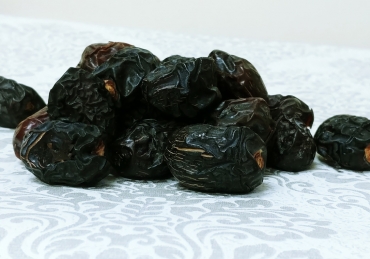Ifṭār Duʿāʾ Query
Question
Your article regarding Ifṭār duʿās does not mention the common duʿāʾ:
اللهم لك صمت وبك آمنت وعليك توكلت وعلى رزقك أفطرت
Is there any narration to substantiate this duʿāʾ at the time of Ifṭār?
بسم الله الرحمن الرحیم
Answer
This duʿāʾ or similar duʿās with variation in the words have been mentioned by several Ḥanafī jurists[1] and the Ḥanbalī scholar ʿAllāmah Ibn al-Jawzī (d. 597/1201)[2]. However, Mullā ʿAlī al-Qārī (d. 1014/1605) suggests that there is no basis for the addition of وبك آمنت and وعليك توكلت وبصوم غد نویت although their meaning is sound.[3] It is therefore more virtuous to read the supplications narrated in the Aḥādīth, as outlined in my article. It is worth noting that in addition to the duʿās listed therein, there is a narration outlined in the Arabic references therein that mentions the following duʿāʾ which can also be read:
اللهم لك صمت وعليك توكلت وعلى رزقك أفطرت
Ḥāfiẓ Ibn Ḥajar al-ʿAsqalānī (d. 852/1449) explains that it is necessary to protect the words of the duʿās that have been transmitted in Aḥādīth because they possess unique characteristics and benefits.[4] The famous muḥaddith Shaykh Rashīd Aḥmad Gangohī (d. 1323/1905) further suggests that a person’s duʿāʾ is more likely to be accepted if he supplicates with the words used by the Prophet ﷺ.[5]
Allah knows best
Yusuf Shabbir
25 Shaʿbān 1437 / 1 June 2016
Footnotes
[1] Ḥashiyah al-Shilbī (1: 342); Majmaʿ al-Anhur (1: 248); Ḥashiyah al-Ṭaḥṭāwī (1: 683).
[2] Al-Inṣāf Li al-Mardāwī (3: 332).
[3] Mirqāt al-Mafātīḥ (4: 1387).
[4] Fatḥ al-Bārī (11: 112).
[5] Al-Kawkab al-Durrī (4: 337).







